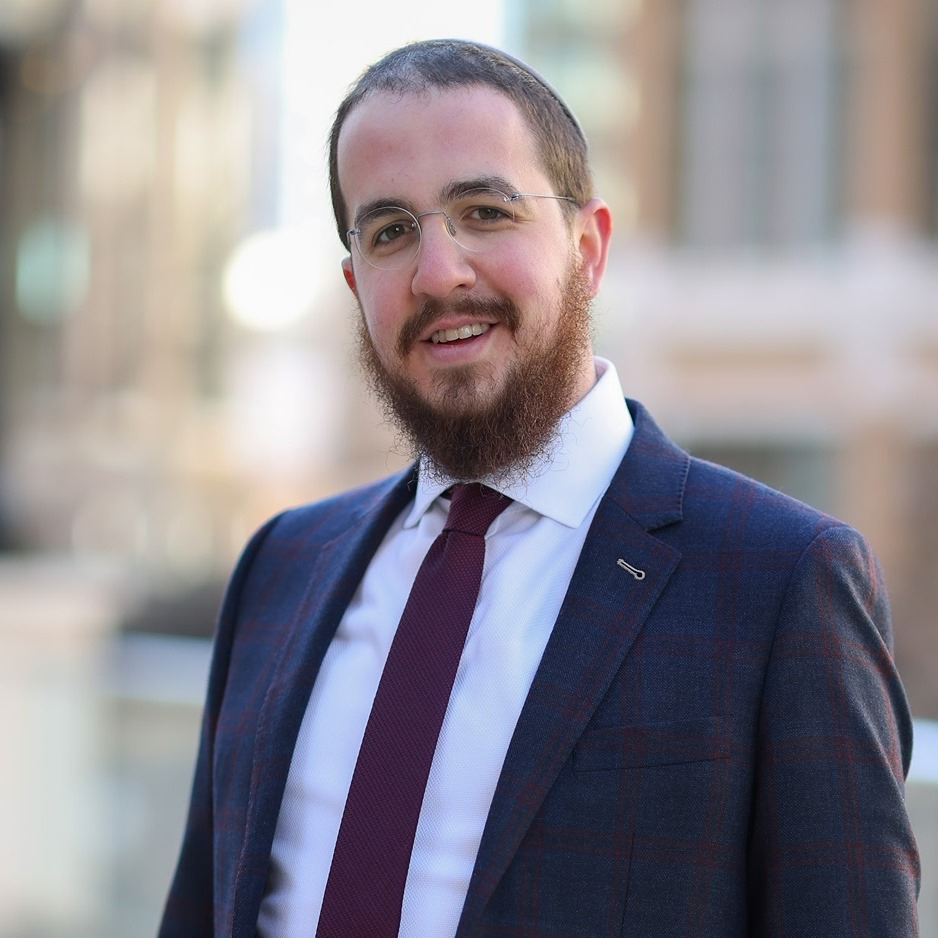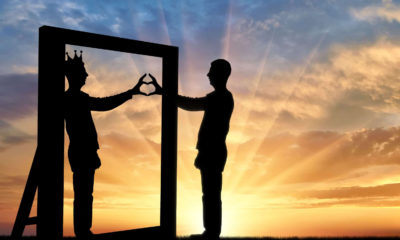
Featured Item

Rabbi tells of child sexual abuse and recovery
He told his eight-year-old-self that he was so sorry for the horrors he would endure as the victim of sexual abuse for the decade that would follow. He implored his small self to remember it was never, ever his fault. He directly addressed the perpetrator – his childhood nanny – and he forgave her, not because she asked for it or deserved it, but because he wanted to free his mind to do positive work for the rest of his life.
In the 18 months since Utah Chabad Rabbi Avremi Zippel, 29, gave his victim-impact statement to the court – as his now-septuagenarian childhood nanny was convicted of 131 counts of sexual abuse against him, and jailed – he has continued to speak out. Believed to be the first Orthodox rabbi to do so, he has made his experience public to offer solace to those who still suffer.
“It has given me the ability and opportunity to be an advocate for this issue in my community, to provide a voice for those who often don’t feel like they have a representative in the world around them. They feel alone, they feel isolated. They feel like no one quite understands their plight. Having this opportunity is the single greatest gift that I think the Almighty G-d has ever given me,” Zippel told a webinar co-hosted by a number of Chabad centres around South Africa this week.
During his talk, he detailed how his parents were emissaries of the (Lubavitcher) Rebbe, and “from as far back as I can remember” his dream was to emulate his father.
Born in Canada, but growing up in Salt Lake City in Utah, he was home schooled along with his siblings as there was no Jewish school in the area at the time. In 1999, when Zippel was eight, the family hired a nanny to help with the day-to-day running of the household. In the decade that ensued, she would wreak havoc on his life. Yet, even after she left, he swore to himself that he would “never tell a single soul about what had happened”.
Nevertheless, “The funny thing is that a lot of these trauma issues, they don’t play by the rules that we would like to enact for them. They still find a way to crop up in our lives, and the trauma that I suffered continued to bother me continuously.”
By the time his wife had their first child in 2016, “I would say that it was getting worse instead of better.” His parents and wife, perturbed by the unexplained changes in him, urged him to seek professional help. Reluctantly, he agreed, quipping that, after all, his wife and mother are indeed “very strong Jewish women”.
Sitting in a therapist’s office, Zippel recalls uttering the words for the first time: “‘I think I was sexually abused as a kid.’ That began a lengthy process of healing.”
In 2018, Zippel, also decided to pursue justice, reporting the case to the police and then facing the difficult trial that led to his former caretaker, evasive and lacking remorse throughout, finally put behind bars for 25 years to life.
Yet he cautions against a neat sense of closure. “People assume that when you ask a Chabad rabbi what the healing process was like and if G-d played a role, the answer will be, ‘Oh absolutely.’”
The reality is far more complex. “It’s fair to say that the Almighty and I have had a very complicated relationship over the years,” Zippel said, “and it’s a connection that constantly evolves.
“I spent the majority of my life pretty passionately convinced that the Almighty G-d hated me. This was a mentality that I developed as a child, when these things started happening to me. I didn’t really have the vocabulary or the understanding to realise that these things that were being done to me were a crime and weren’t my fault.” Instead, said Zippel, he became twisted with his own sense of blame, shame, and guilt.
“When I started therapy, I realised that an even more painful and lonely place than thinking G-d hated me was thinking G-d had somehow ignored [me].”
He began to ponder, “What kind of G-d allows this to happen to a child? Not once or twice or five times but dozens and dozens of times? Not just G-d in the abstract, but the G-d that we learn about and think about, frankly the G-d I ‘sell’ as a rabbi – the all-knowing, all-seeing, all-powerful G-d. Did he just decide to remain oblivious to my suffering?
“Ultimately,” muses Zippel, “those are questions to which I will never have a good answer. In that sense, I feel welcome to join the legions of human beings that have endured any sort of pain and suffering in their life and have questions and complaints to G-d.”
Yet, there is a further development to his connection to G-d. “After I went public that I was a survivor of child sexual abuse, I had the opportunity to use my experiences to enact positive change in my community and in the world around me,” Zippel said.
More than just patching it up, Zippel and his wife have fulfilled his childhood dream, serving as a community rabbi and rebbetzin in Salt Lake City. Yet, he said, this joyful success doesn’t take away from the reality that “no one graduates from childhood trauma … every single day, you wake up with the mentality that today, I have the ability to focus on being either a victim of my pain or a survivor who has come out to the other side. Every single day, I need to represent that eight-year-old child. This is a lifetime journey of healing.”
How to arm your children against abuse
Although it’s impossible to guarantee your child’s safety from potential abusers, there are some steps you can take to protect them, says abuse survivor Rabbi Avremi Zippel.
First, parents needed to be open in age-appropriate ways about the possible dangers. “The greatest way to arm our children is to be honest with them that this sort of thing happens,” Zippel says.
Moreover, parents need to nurture open communication with their children. “We know that children rarely speak to their parents or trusted adults about these experiences because by and large, they feel shame and fear the consequences.
“As parents, we have to share the sentiment that there is never any sort of topic, any sort of experience, or any sort of encounter that our children will go through that will be met by judgement or any sort of shaming on our part. Let them see that if they share something with us, they can come to expect unconditional love, acceptance, and understanding,” Zippel says.
To the victims, Zippel says, “I often tell people to try [to disclose] it in small doses.”
In his case, he says, telling a therapist was actually easier as the first step. Nevertheless, it’s also important to tell close family and friends. Sometimes, says Zippel, survivors of abuse are reluctant to do this because they believe that they will burden their loved ones or affect the way they are seen by them. But this is a misconception.
“Just the proximity that they have to your life means that they have been touched by these experiences. By sharing this information, we’re giving them the knowledge, the context, and the education they need to grow through this with us.”
- To get help, contact Koleinu, a support service for abuse victims, www.koleinusa.co.za, or via the organisation’s social media pages.










